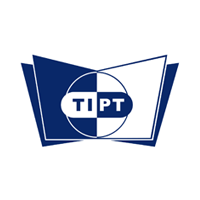
Are you considering taking the next step in your career? If you already have an undergraduate degree in a scientific field and enjoy detail-oriented work, then a career in regulatory affairs could be in your future. When you work in regulatory affairs for a pharmaceutical company, you help ensure that company meets its regulatory requirements and you assist in getting new drugs approved for sale.
As regulations become more stringent, pharmaceutical companies are increasingly recognizing the high value that a professional with regulatory affairs training can bring to their organization. As a result, training for this important field can unlock many career opportunities.
Read on to learn about some of the skills that pharmaceutical companies value in prospective employees.
Pharma Employers Want Grads Who Know How New Drugs Get Approved
The success of pharmaceutical companies often depends on whether they can get new drugs or therapies approved for sale. Pharmaceutical companies spend massive amounts of money on developing new drugs. According to an analysis by the Tufts Center for the Study of Drug Development, the total cost of researching and developing a new drug is over $2.8 billion. Furthermore, a recent MIT study found that just 13.8% of new drugs are ultimately approved.

Given the extremely high costs and low approval rates, pharmaceutical companies need to increase their chances of success in whatever ways they can. That’s why such companies value a prospective employee with a regulatory affairs diploma, which ensures they’ve been taught the most important applications for new drugs, such as the New Drug Submission (NDS) in Canada and the Investigational New Drug (IND), New Drug Application (NDA), Abbreviated New Drug Application (ANDA) and Biologics License Application (BLA) in the United States. Understanding these major drug applications will give you a competitive advantage if you decide to pursue a career in regulatory affairs.
Regulatory Affairs Grads with Practical Experience Are Highly Valued
Of course, studying regulatory affairs is one thing, experiencing how it works in the real world is another. That’s why pharmaceutical companies seek students who understand regulatory affairs not only in theory, but also in practice.
Regulatory affairs graduates who have completed real-world training have a significant advantage when seeking employment. That practical experience may include, for example, an integrated co-op where students get to work with real drug submissions that have been approved by regulating agencies. This sort of hands-on training gives employers the reassurance that a new employee will be able to apply their education in useful ways to the benefit of the company.
Knowledge of International Regulatory Affairs Unlocks Further Opportunities
Pharmaceutical companies often must navigate the regulations of multiple countries and regions simultaneously, which can be challenging given the complexity of each jurisdiction’s regulatory process. Those companies want regulatory affairs program graduates who have learned about Canadian and US regulations, as well as the regulations in other major markets, such as the European Union, Japan and Australia.

The stakes for pharmaceutical companies are high when it comes to navigating regulations around the world. By failing to comply with the regulations of a particular country, that company could suddenly find itself shut out of a potentially lucrative market. That’s precisely why they want employees who have a working knowledge of international regulatory affairs.
Are you ready to pursue an exciting career in regulatory affairs?
Contact Toronto Institute of Pharmaceutical Technology to learn more about our regulatory affairs courses!
